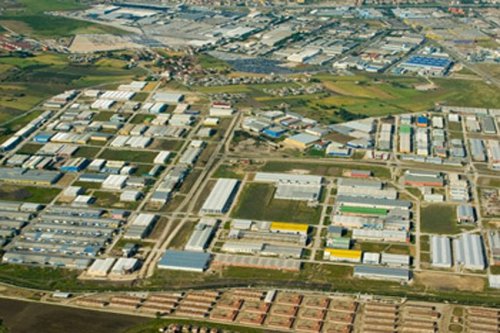TEPAV will be guiding Islamic countries to adapt Turkey's OIZ model Signing a cooperation protocol with Islamic Development Bank, TEPAV will be guiding Islamic countries on private sector development, economic integration issues and especially on Organized Industrial Zones model of Turkey.

ANKARA - TEPAV has got ready to guide the adaptation of Turkey's Organized Industrial Zones (OIZ) model to Islamic countries. A tripartite Project will be launched between TEPAV, Corporation for the Development of the Private Sector (ICD), an Islamic Development Bank organization, and Statistical, Economic & Social Research & Training Centre for Islamic Countries (SECRIC) in the next days. In the project TEPAV will be guiding Islamic countries on private sector development, economic integration issues and especially sharing Turkey's OIZ experience.
Turkish firms will also move forward
Giving information about the project, TEPAV Economic Policies Analyst Esen Caglar said they target to contribute to the increasing of prosperity in Islamic countries and strengthening the competitiveness of Turkey which is feeling the pressure of being regional power as well as trying to boost its economy. Çağlar stated the Turkish firms which have been in these countries to do business might have had the problems because of the lack of developed free market economy and corporate infrastructure and added that Turkish firms can move forward easily in the market of Islamic countries, if the economic integration improves in the region. Talking about in the perspective of Islamic countries, Çağlar also emphasized that the project will facilitate the improvement of prosperity and private sector development in these countries.
Declaring that the project mainly will pay attention to develop the economic integration and private sector in Islamic countries, Çağlar said that they will also research the role of the exclusive economic zones specifically in the context of Turkey's OIZ experience. Çağlar maintained that they will be trying to find answers to question as to how OIZ model in Turkey can be transferred to Islamic countries and how these zones can contribute the countries' economic integration. Çağlar went on to say at the end of the project, planned to last one year, concrete policy recommendations about the subject will be put forth.
Turkey is by far ahead with "diversification"
As well evaluating how Turkey can be a guide for the Islamic countries, Çağlar stressed that to answer this we have better look at Turkey through the eyes of the region's countries as the view is different from there. Maintaining that this outlook should not be assessed without accounting the economic diversification Turkey experienced in the recent years, Çağlar said:
"The shift of axis debates should also be considered in this context. The most important dimension of the diversification process in Turkey is the country-wide expansion of the industrial basis. Production goes beyond a few industrial centers and expands towards grassroots. The second dimension of this issue has to do with the diversification of the production structure. There used to be a few sectors driving exports. Now there is much more. Moreover, Turkey, which exported low-technology and agricultural products in 1980's has a medium-technology production structure. For instance, exports under 40 product groups exceed US$500 million. Compared to the countries of the region, Turkey is by far ahead with respect to this diversity pattern. Following Turkey are Russia with 28 product groups, Romania with 20, Israel with 15, Egypt with 11 and Iran with 8 product groups respectively. The third dimension of diversification is market diversification. Turkey exports to a higher number of countries now. Turkey makes more than US$500 million exports to 47 countries. On the other hand, Ukraine has a significant export volume in 32 markets, Romania in 21 and Iran in 5 markets. These figures must be kept in mind when evaluating the relationship between IDB countries and Turkey."
The cooperation protocol which launched the project has been signed between TEPAV and Islamic Development Bank in Istanbul last week. Few days ago TEPAV also held a workshop in Istanbul with the participation of specialists from Islamic countries. In the workshop with theme "Improving Investment Climate for Economic Growth", Turkey shared its experiences about the issue with the member countries of Islamic Development Bank.
- Public Policy Studies
- TEPAV will guide to Islamic countries for private sector development














